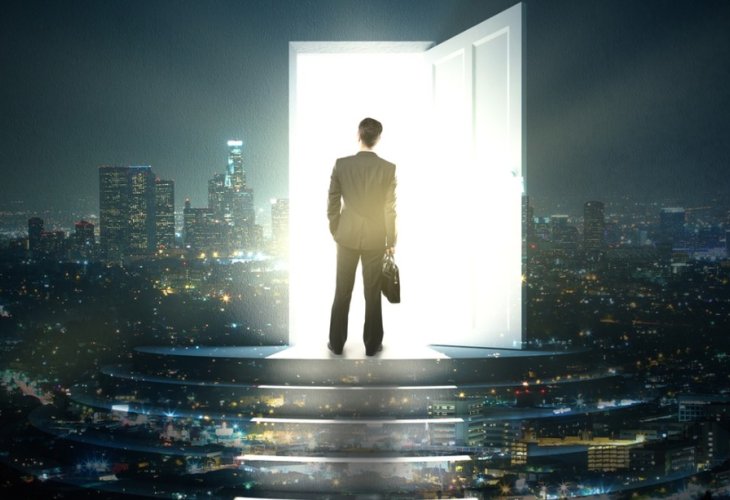"How Can It Be That the Whole World Lives in a Lie, and Only We Found the Way of Truth?" 5 Points to Ponder
How does a fetus breathe in the womb, and how does human memory work? What is the body's thermostat? And "What if I don't make it to the World to Come?"
 (Photo: shutterstock)
(Photo: shutterstock)Breathe in Water!
Some parents fear their child might swallow water in a pool and choke, heaven forbid. There are people who dive into water and breathe easily, thanks to an oxygen tank and snorkel that allow them to breathe freely underwater.
I thought to myself, how does a fetus breathe inside its mother's womb without choking on the amniotic fluid surrounding it?
Before we answer the question, here's a brief explanation of the respiratory system: when we breathe, air reaches the lungs and is then transferred to the arteries in the circulatory system, which carry oxygen to the body's cells. The lungs are a means for transferring oxygen to the blood, and not the purpose of the respiratory system. They are unnecessary if there is another efficient way to move oxygen into the arteries and out of the veins.
 (Photo: shutterstock)
(Photo: shutterstock)Indeed, a fetus is in an aquatic environment that isn't rich enough in oxygen to meet its needs. In such conditions, a person would surely choke and drown. However, a fetus has something a person who is already born doesn’t – its mother, who carries it, is physically connected to it, and supplies all its needs through her blood.
The blood vessels of the mother and fetus are not directly connected (if they were, the mother's immune system would attack the fetus) but through a mediator called the placenta. The placenta, which develops along with the fetus and is connected to it via the umbilical cord, allows for the transfer of food and oxygen from mother to fetus, and waste and carbon dioxide from fetus to mother.
In other words, the mother breathes for the fetus in the womb and passes oxygen to it through the umbilical cord, which is why the baby doesn't choke. Upon birth, the fetus exits the mother and detaches from the umbilical cord, then begins to take its first breaths as a newborn...
Let's Not Deceive Ourselves
This world isn't an end in itself but a means to prepare us for the World to Come. Someone might dismissively think, "So, I won't live in the World to Come. I'll live in this world as I please, end my life here, and that's it...".
Such a person might want to recall missed opportunities in life and try to remember the accompanying pain and regret. This could happen in small and simple situations. It might have happened that the person left home on a winter day and was too lazy to take an umbrella, only to experience a downpour in the middle of the way, finding themselves unprotected. All their clothes and body wet, shivering as a leaf blown by the wind. How much they regretted their laziness, how much they lamented and blamed themselves: "Why didn't I take an umbrella?"
This is just a tiny example because this discomfort passes relatively quickly once the person reaches home and changes clothes, yet they are full of regret. However, naturally, the greater the loss and missed opportunity, the deeper the pain and greater the regret. For example, how much will someone regret who negligently loses a significant promotion that could substantially improve their financial status! How much regret will someone have who neglects a "small wound" on their leg which turns out to be "gangrene," leading to the leg's amputation!
Indeed, even a superficial observation shows that any thought that dismisses concern for our state in the World to Come is entirely erroneous, bordering on self-deception, and originates from ignorance and a desire to ignore the truth.
We can't describe the heartbreak and regret when a person looks back at their life and realizes the time wasted on vanity, how many delights of paradise they missed, and how many hours went to waste throughout their life when every hour could earn them paradise with wonderful pleasures...
Internal Thermometer
We all know the role of the thermostat (from Greek: Thermos = heat, Status = stable). It's a device for controlling the temperature of a system. Its purpose is to keep the system within a desired temperature range and thus protect it from damage.
Our bodies also have a thermostat. What is it?
Body heat is regulated by a heat controller located in the hypothalamus gland in the brain.
The human body needs to constantly maintain a temperature of 37 degrees. That's why our brain continuously monitors our body temperature.
If our body cools too much, the brain issues a series of commands to heat the system. One way to warm the body is through shivering. Shivering can occur all over the body, including the jaw, which is why we're often shaking and our teeth chatter when cold – brrrr...
Conversely, if our body overheats, the brain issues a series of commands to cool the system. For example, sweating is a way for the body to cool itself. Sweat, a fluid mostly consisting of water, is produced in the body and released through tiny pores called sweat glands found on our skin.
How does our body know so well how to regulate our body heat, which is so crucial for our body's functioning so crucial it doesn't lose body heat and consciousness? Who programmed this wonderful thermostat?
The Human Memory
When we try to retrieve something from memory that happened many years ago, we revisit and relive the period and event we sought to refresh. The brain structure responsible for the memory process, especially for episodes, is called the "Hippocampus."
For patients whose part of this was removed surgically, it was found that they have no problem recognizing old friends or recalling previous experiences. They can read and use skills acquired early in life, yet they have little if any memory of events that happened in the last year before the surgery and cannot recall events that occurred after.
For example, they won't be able to recognize someone they spent many hours with earlier that day. They will assemble the same puzzle repeatedly over weeks, never remembering they did so before, and read the same newspaper repeatedly without remembering its content.
 (Photo: shutterstock)
(Photo: shutterstock)And I ask, how and where is human memory stored? What causes information to be retrieved in time? How is it that memories don't "mix" together? How do we remember events that happened decades ago with great accuracy?
Someone is "in charge" of the order of thoughts in the brain. There are "clerks" tasked with the archive, retrieving data upon request. If information was jumbled in our brains – past and present, emotions and actions – human functioning would be impaired!
We must appreciate this and thank the Creator of the world for allowing us memory. We should cherish memories of every moment with our loved ones, magical and joyful moments with family and friends, significant moments in our lives "stored" in our memories without us even noticing.
A Billion Chinese are Wrong?!
Many are puzzled by the claim: "How can it be that so many people in the world live in a lie, and only we, the religious, found the way of truth? Is it possible that the majority is wrong, and the minority is right?"
It's important to know that the majority isn't always right, and indeed, the whole world has been wrong before!
Should we start believing in absurd religions like Christianity and Islam just because they have billions of followers? Certainly not! These are absurd and false religions based on books full of contradictions!
Shall we start smoking cigarettes because a billion people smoke or start drinking alcohol because two billion people worldwide do (according to recent international studies)? Certainly not, as it's known to cause severe health damage!
History is full of "scientific" facts asserted by world-renowned professors that were later proven wrong. For example, it sounds bizarre, but until about 500 years ago, esteemed scientists thought the world was a flat plane standing on four massive elephants, which stood on a giant turtle swimming in an endless ocean... Yet today every child knows the earth is a round sphere, a planet orbiting the sun.
We must not follow the majority just because it's the majority. After all, individuals make up that majority, each looking at others and saying they want to be like them. So every person does what everyone else does, without anyone knowing the real reason for their actions. That's precisely the situation we've reached today.
To escape this situation, we need to start thinking for ourselves. Thought and reflection on life lead us to insights and conclusions. The problem here is that nobody has time to reach these insights, as everyone is too busy imitating the majority...
Do you think there's anyone who would hand their eight-day-old son to a mohel for surgery in one of the body's most sensitive areas, if they weren't sure there is a Creator of the world who commanded us to do this?
It's foolish to think the majority is right, and therefore it's worth becoming one of them. When you think about it, it seems quite plausible that a billion Chinese can easily be wrong, along with 99% of the world...

